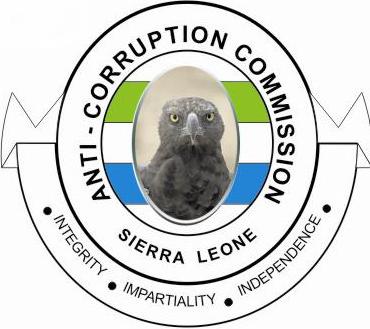By: Sylvanus Blake – Assistant PRO, ACC
The Anti-Corruption Commission (ACC) which is in-charge of the roll out of the Grievance Redress Mechanism (GRM) component of the Social Safety Net (SSN) projects, targeted at preventing acts that will constitute corruption in the project and addressing all grievances from beneficiaries has on Wednesday, 30th November, 2022, commenced the monitoring of the payment of beneficiaries of the Emergency Cash Transfer (ECT) in Freetown.
The Deputy Commissioner of the ACC, Augustine Foday Ngobie, who joined staff of the Commission on the monitoring exercise of the targeting, enrollment, and payment of One Million, Three Hundred and Nine (Old) Leones (Le:1,309,000) or One Thousand, Three Hundred and Nine (New) Leones (LeN:1,309) to 9,900 beneficiaries being part of the Residual Caseload, that were not paid during the initial payment in 2021, due to some challenges, but had now resumed, told the traders that the ACC shall at all times ensure the smooth and unhindered implementation of the project, devoid of corruption. He told beneficiaries that they should feel free to always call and or refer all complaints, concerns and grievances to the Commission, and assured them of a swift and adequate response and there will be no reprisals for anyone who makes complaints to the ACC.
During the on-the-spot monitoring exercise, the Deputy Commissioner visited the Wilberforce Barracks, Old School Complex and other venues within the Freetown, where hundreds of beneficiaries, mostly women whose businesses were adversely affected by the CoVID-19 pandemic and the current global economic challenges were gathered to be registered and paid the cash grant. He told them that this Emergency Cash Transfer is a European Union, World Bank and Government of Sierra Leone (GoSL) funded project, implemented by National Commission for Social Action (NaCSA) and the Rokel Commercial Bank and monitored by the ACC and other stakeholders.
Giving an overview of the project, the Deputy Commissioner said that the Emergency Cash Transfer project is a crucial component of the SSN program, which was initiated to cushion the widespread debilitating economic effects on especially poor and vulnerable households, during the Ebola outbreak. He said that the SSN program has kept mutating and expanding even after the Ebola Pandemic. Mr. Ngobie furthered that the Emergency Cash Transfer to petty business owners/traders, mostly women, that were grossly affected by the CoVID19 pandemic and its accompanying economic effects will help resurrect their failing small businesses.
Mr. Ngobie randomly engaged beneficiaries and stakeholders implementing the cash transfer, on the general conduct of the exercise. As all the centers visited were orderly and everything went on smoothly, with no visible challenges, the beneficiaries stated that there were no problems with the payment. They admitted that the registration and payment was going on well and they had no concerns. They appreciated the on-the-spot visit by the ACC leadership, which they referred to as reassuring.
The ACC Deputy Commissioner admonished all stakeholders in the process- NaCSA and Rokel Commercial Bank, who were doing the enrollment and payment, the Institute of Governance Reform, ACC staff etc. to continue upholding the highest level of integrity and transparency in their tasks. He stated that all the major players were present in order to support the process and ensure beneficiaries get unfettered access to their entitlements and ensure that the objectives of the SSN also known as “ep fet po” program are not betrayed.
He presented the ACC staff deployed at every centre to the stakeholders and beneficiaries for ease of reference and greater collaboration.
This phase of the payment will ensure that all 9,900 Residual Caseload beneficiaries receive their One Million, Three Hundred and Nine (Old) Leones (Le:1,309,000) or One Thousand, Three Hundred and Nine (New) Leones (LeN:1,309) accurately.




